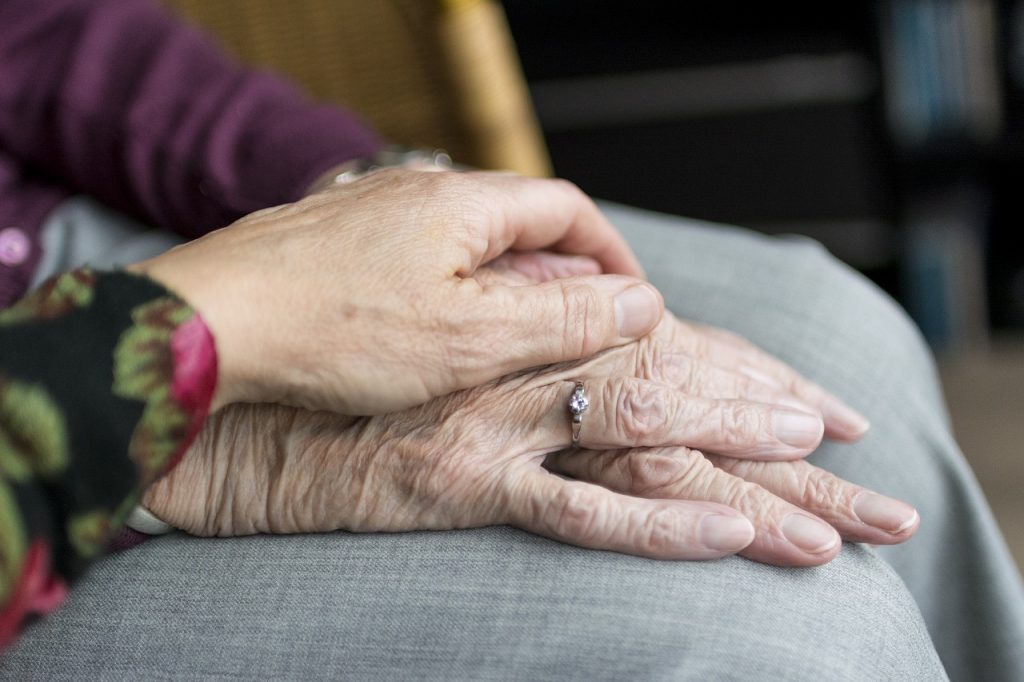Are you a compassionate, hardworking carer looking to explore new opportunities? Domiciliary care is a natural move that thousands of carers make every year, and it could be the perfect fit for you. In this quick guide, we will cover what domiciliary care is, the key duties involved, and any qualifications you may need. Let’s dive right in for a closer look at the key details.

What Is Domiciliary Care?
Domiciliary care, also called home care, consists of a range of services designed to help people in the comfort of their homes. You can think of it as a helping hand that assists with all of the day-to-day activities that people who require additional help may need support with.
As a professional who provides domiciliary care, you would be delivering a range of personal care services to people from all walks of life. The goal is to maintain and improve the quality of life as patients age or struggle with pre-existing conditions. The idea is to promote a sense of independence and improve the self-confidence of people who want to live at home, as opposed to moving into a residential care facility.
Domiciliary care is an ongoing form of support that focuses on meeting needs and sustainably supporting daily routines. Any regular daily or weekly task that someone needs assistance with would fall under the category of domiciliary care.
Who Is Domiciliary Care For?
Domiciliary care is for anyone who wants to maintain their independence by living at home. Common conditions people may be living with include dementia and multiple sclerosis, as well as people who are recovering from major surgery.
Others have mobility issues that can make it difficult for them to get around the house. By choosing to receive domiciliary care at home, they are able to maintain a sense of normalcy and a good quality of life.
What Is A Domiciliary Care Worker?
Domiciliary carers are responsible for providing help and support to people of all ages and abilities within their own homes. They are commonly known as home carers and private carers, and are compassionate professionals who will provide:
- Daily visits to assist with everyday tasks
- Weekly check-ins to ensure everything is okay
- Live in care so a patient can remain at home
Take a look at any domiciliary care job description you find online and you’ll see the following key duties:
- Household chores: Doing the laundry, catching up with the cleaning, and helping with the dishes are all things that a domiciliary carer may help with
- Everyday mobility: Help with moving around the house, getting up and down the stairs, and getting in and out of bed or the bath are all common requests
- Daily excursions: Getting out and about is something that many people struggle with if they don’t have someone to help with their mobility issues. A domiciliary care worker will help with everything from making local travel arrangements to chaperoning
- Companionship: While someone may still have enough independence to live at home, they may also suffer loneliness. Domiciliary carers can provide additional opportunities to socialise and talk through the events of the day
Domiciliary Care vs Regular Care
While regular care is typically delivered in a residential care home or community centre, domiciliary care is specifically delivered at home. This requires carers to act with respect and discretion so that patients always feel in control of the care process.
Sometimes letting a new face through the front door can be daunting for a patient, but a personable nature and warm approach will make all the difference. These soft skills can be supplemented with a range of qualifications.
It’s also important to note that in the case of insurance, domiciliary carers are not covered for any healthcare-related or hands-on tasks.
Domiciliary Care Qualifications
Domiciliary care is regulated by the Care Quality Commission (CQC). While there are no legally required qualifications, many carers benefit from taking a Level 3 Diploma in Health & Social Care or an NVQ 3 Health & Social Care.
Both qualifications are widely available and can be studied alongside a full-time career.
Domiciliary Care Insurance
Self-employed domiciliary carers will need to have the correct insurance in place so that they are protected.
Key features to look for are public liability (we recommend up to £5m), coverage for loss or damage of property, and coverage for accidental injury and any legal expenses incurred. We can also help you get an insurance policy that is free from any form of costly excess.
The key difference between regular care and domiciliary care is that the latter is always carried out in the patient’s home so that they can continue to enjoy a degree of independence. Domiciliary care work is a challenging yet highly rewarding career path that allows skilled professionals to build long-term relationships and support networks that will help those in need.
By working in the heart of the community — as opposed to within the confines of a residential care home — you can play a major role in helping people maintain their independence. The result is a career that always offers something new and is rewarding in a variety of different ways.
Frequently Asked Questions
Many carers choose to specialise in domiciliary care and study for an NVQ 3 Health & Social Care qualification. Domiciliary care is a career pathway that is sought after and available in every part of the UK.
Many domiciliary carers choose to be self-employed because of the flexibility it gives them. If you choose to go self-employed, it is essential to have the correct insurance in place.
A kind, compassionate, and understanding nature combined with a willingness to be flexible and solve problems efficiently. If you can be caring and thoughtful even when tired or under stress, a career as a domiciliary carer could be perfect for you.








